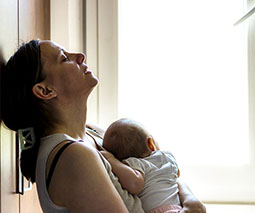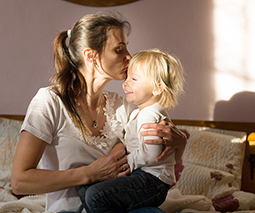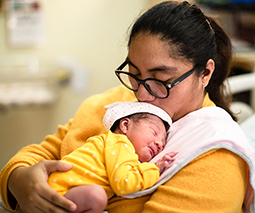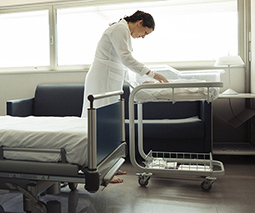6 health professionals you’ll need before and after your baby arrives
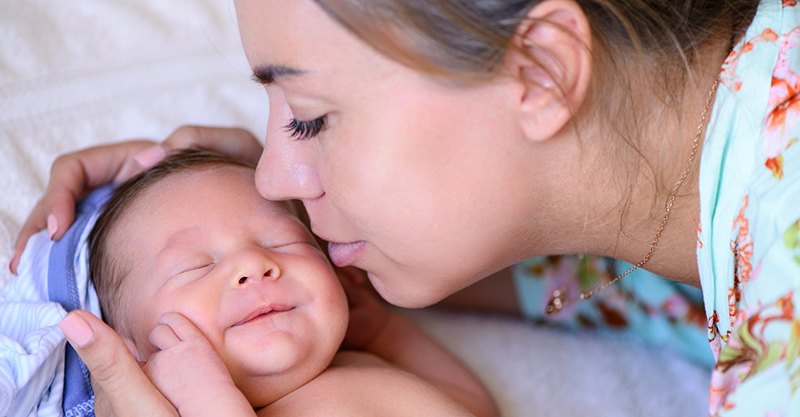
When you become pregnant, it’s like entering a whole new world. Not only are people using words you’ve never heard of before like ‘amniotic fluid’ and ‘Braxton Hicks‘, but there’s also a whole range of health professionals you’ll meet along the way that you need to get your head around too. While their titles and roles might end up a confusing blur, it can be useful to know who’s who so you know where to turn if you need help down the track.
Here are six kinds of health professionals that you are likely to come across:
1. Midwife
The first person you are likely to meet during your pregnancy journey is a hospital midwife. She will collect your medical information and ask you questions about how you’re feeling and you’ll in turn be able to ask all the questions you need to about pregnancy, birth and beyond. You’ll continue to check in with a hospital midwife at regular intervals throughout your pregnancy. If your pregnancy and birth go smoothly, a midwife will help you deliver your baby on the big day.
2. Obstetrician
An obstetrician is a medical doctor with special training and skills in the health of women during pregnancy, childbirth and after the birth. If you are birthing in a public hospital and have a low-risk pregnancy, and everything progresses smoothly during labour and birth, you might not even meet an obstetrician at the birth. But if there are any complications or if your baby needs some extra attention after birth, the obstetrician is likely to be present. You can choose to be cared for privately by an obstetrician, in which case you will receive continual care from them right through your pregnancy and birth.
3. Doula
A doula is trained to help you during pregnancy and birth, and can also support you in the postpartum period when you bring baby home. Unlike a midwife, a birth doula is not medically trained, and her role is more focussed on supporting you, informing you and advocating on your behalf to help you get the birthing experience you want. Many birth doulas are also trained as postnatal doulas, whose role is to make sure you transition smoothly to motherhood. You will need to research for a doula in your area and interview her to make sure she is trained and that you are both on the same page when it comes to birthing and early parenting.
4. Breastfeeding Counsellor
A breastfeeding counsellor is someone who can help you get the basics right with feeding your baby, as well as help you troubleshoot any feeding challenges you come up against. You can speak with volunteer breastfeeding counsellors through the Australian Breastfeeding Association phone line, or book a private session with one in your home. As well as having a thorough understanding of lactation, a breastfeeding counsellor is also trained to be sensitive and non-judgemental, so you can share how you’re feeling about breastfeeding and get the emotional support you need.
5. Lactation Consultant
A Lactation Consultant is a health professional with specialist training in breastfeeding and helps women work through breastfeeding concerns that are complicated or require greater intervention, such as a tongue-tie in your baby, or milk supply concerns. A lactation consultant has the International Board Certified Lactation Consultant (IBCLC) qualification, which means she is considered to have expert knowledge of human lactation and considerable clinical experience in the breastfeeding field.
6. Maternal and Child Health Nurses
These health professionals can be called slightly different titles depending on what state you live in, but their role is pretty similar across the board. Maternal and Child Health Nurses are registered nurses with extra training in maternal and child health, and you will see these guys regularly once your baby is born, and you’re both home from hospital. They are responsible for keeping track of your baby’s development at various intervals during the first few years of their lives, and are also available for you to visit and ask questions about your baby’s behaviour, as well as support you with any emotional concerns.

